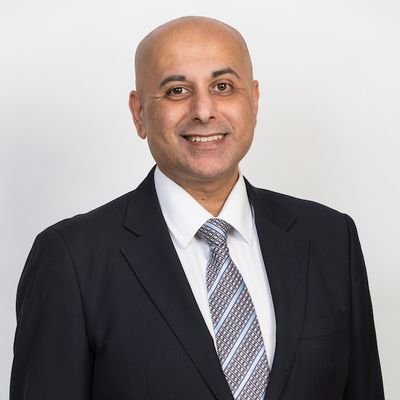
Sajjad Karim
I believe that maintaining the unity of the UK is amongst the biggest challenges facing our country. The bond between England, Scotland, Wales and Northern Ireland has been built on our shared values and outlook. It is deep rooted and special. The recent English local election results show the dangers that lie ahead if our traditional values are not immediately reasserted as the anchor of the government’s agenda underpinning economic recovery.
We are a country whose economic and political stability has been rooted in an evolutionary democracy. The EU referendum unleashed a chain of events that have enabled politicians and governments to pursue policies wholly unsuited for preserving our Union. This leaves us ill-equipped today to manage global challenges of increasing complexity and danger.
It is vital that the next government is one that voters believe has listened to them and will act in an honest and meaningful way to address their concerns. It must then deliver. This requires securing an electoral coalition of voters who believe that only by refocusing on our traditional values of tolerance, openness, fairness, and individual opportunity can we navigate to a position from which we can rebuild.
A strong government with a Parliament committed to repairing our institutional framework and delivering for our people is the need of our time.
It is heartening to see that the predictions of Lee Anderson delivering Reform election successes came to nothing in the local elections.
Nonetheless, there remains a pressing need to engage deeply with our working class communities to ensure they are stakeholders in the journey ahead. Coming from an English, northern working class community, I know the majority will reject the politics of division and hate once they feel valued and understood. The lure of the simplistic rhetoric of the nationalist right and left is fed on despair at being abandoned by mainstream politicians.
There is clear evidence that the public are unhappy and want change.The explicit assumption that change is coming in the form of a Labour government carries a danger. But our electoral system can produce capricious results. Many Conservative voters remain to be persuaded how to vote, despite their unhappiness with the divisive culture war politics pursued by Johnson, Truss, Braverman and disappointingly,to an extent, Sunak. While seeking their support, Labour also needs to regain its Muslim voters. Labour should not treat this is as an either/or option. It needs both electorates.
Among the available options, there is alarming growth in support for the reactionary, populist, grievance driven politics promoted by both Nigel Farage and George Galloway and their allies. Both these men seek to weaken the rich tapestry of ties that bind our communities, undermine our established institutional framework and increase tensions between the constituent parts of the Union itself. Johnson’s chipping away at our conventions and institutions has left a base for these extremists. Appealing to English nationalism and stoking sectarian anger while offering simplistic proposals serves their purposes well. Politicians have a stark choice. Either bring our people together or let divide and rule flourish. We need a government that believes in the former. A government committed both to inclusive national unity and economic revival. Lack of social cohesion is detrimental both to the Union and the economy.
Among those feeling particularly excluded from mainstream politics are many British Muslims, most of whom have historically voted Labour. Too many Labour councillors and activists voted independent in the local elections. Others have aligned for now with George Galloway or the Greens. Yet the majority remain open to persuasion back into the fold. This task needs to be undertaken urgently, both for the cohesiveness of our society and to stop these communities being played by those opportunist politicians who revel in setting one group of citizens against another.
Great swathes of British Muslims feel a profound sense of betrayal by the Labour leadership over Gaza. These voters neither support Hamas nor are they anti-semitic. Why would they be? Muslims, Jews and Christians are all part of the Abrahamic faith tradition. They see the Conservative stance on Islamophobia for what it is – exclusionary, discriminatory and divisive. A country that allows such distinctions to persist can expect to see other forms of discrimination flourish. The rising anti-semitism must ring loud alarm bells. It is the canary in the coalmine and the first sign of our society heading down a dangerous pathway.
It is disenchantment with the Labour Party for not upholding its own principles and the traditional British values that back international law that have led to these Muslim voters walking away. Without fear or favour, Labour must reassert its unequivocal commitment to both international standards of human rights and legal conventions governing the conduct of war. This will unify all sections of our population in all the constituent parts of the UK and wrong-foot those seeking to rip us apart from within. It is also a huge step towards reinstating our standing on our continent and globally.
Sadly, the current Conservative leadership offers nothing but a wrecking ball. That wrecking ball, in the hands of English nationalists,be it from the left or right, will destroy the Union and place England’s minority communities in peril.
The next General Election will fundamentally determine which pathway we are on. Our electorate must understand what is at stake.
It is time to return to our norm of a consensual, democracy built from,and in, the political centre ground. The future of the Union and a stable, diverse but united society lies in the support for mainstream
politics and the rejection of the divisive dangers of the extremes.
The write was the first British Muslim member of the European Parliament from 2004-2019. He chaired the European Parliament’s Conduct Committee and Islamophobia Inter Group. He is a lawyer, entrepreneur, international trade specialist and peace negotiator. He was born, bred and lives in Lancashire. He can be reached at @SHK_UK






